I cannot think of a better place to reflect upon the past election cycle than the hills of Tuscany. And that’s exactly where we headed. Under the Tuscan sun, surrounded by olive trees and stunning landscapes I felt human again.
There, we kept the fall at bay for a while—physical and metaphorical.1 Because fall is inevitable, and so is the winter that follows. We can do more than squeak by, if we prepare for it.
December will come. We’ll awake to the darkness, the warmth of our blankets still over us. With us are those who’re still asleep, and the sleepy cities and towns that stretch in a crescendo of illuminated windows and noise.
Morning has its rituals for everyone—the warmth of the shower, the gurgling moka, the backpack to be filled. (Perhaps instead of the news on mute, no news at all just the silence of our thoughts.)
December brings something more. We can choose to make it other than a big clearance sale. We can combine the gratitude of being alive (it beats alternatives) with the tenderness of connection to family and friends.
This week, my deliberate act of storage and transmission to access the value in culture and ensure our survival is via poetry.
Reminder: You can get extra insights—in-depth information, ideas, and interviews on the value of culture.
Join the premium list to access new series, topic break-downs, and The Vault.
1/5 Since the last round-up, On Value in Culture published:
Between dream and reality—Could the hybrid art format—documentary and fiction—be the key to gain access to new energies?
(🔒) Time Travel - Part 1 of 2—Why we can’t see the past for what it was and imagine the future for what it could be.
Fake Agency // Personal Power—First social media faked influence, then the hucksters enabled those who consume and share information that is blatantly made-up. Can we reclaim critical thinking?
(🔒) Time Travel - Part 2 of 2—Literary works clue us into influence and agency of the past; trends and predictions illustrate the difficulty to imagine the future.
Eden—Wherever we go, there we are—culture has more value than money, but we don’t recognize it.
(🔒) What you can Learn from Dante’s Inferno and its 9 Circles—He wrote the book in 1307—his exploration of human themes still applies more than 700 tears later.
We Stink at Listening—It’s the most valuable skill and nobody teaches it.
(🔒) A study of life and the universe as a physicist-technician can imagine—From microchips to consciousness and emotion—the four lives of Federico Faggin.
Supporters can access full articles and commentary at The Vault (🔒).
2/5 Many Italian poets were also translators and teachers. Giuseppe Ungaretti was born in Egypt a century before I moved to America. After studies at the Sorbonne, he met poets Guillaume Apollinaire, Charles Péguy, and Paul Valéry.
Avant-garde artists Pablo Picasso, Georges Braque, and Fernand Léger were also friends. One of the most important influences of his life was contact with the poetry of French Symbolist Stéphane Mallarmé.
Like many other Italian intellectuals he enrolled in the army at the ourbreak of World War I. He wrote his first volume of poetry while on the battlefield. Each poem had a location and a date—as if it were his last.
He composed ‘Soldiers’ (Soldati) on July 1918, in the trenches near a forest in Courton, Reims.
Si sta come
d’autunno
sugli alberi
le foglie.
Which literally translates into “We are as / in autumn / on branches / the leaves.” In just a few words, we can see Ungaretti’s understanding of the absurd condition of his fellow soldiers but also his fellow men.
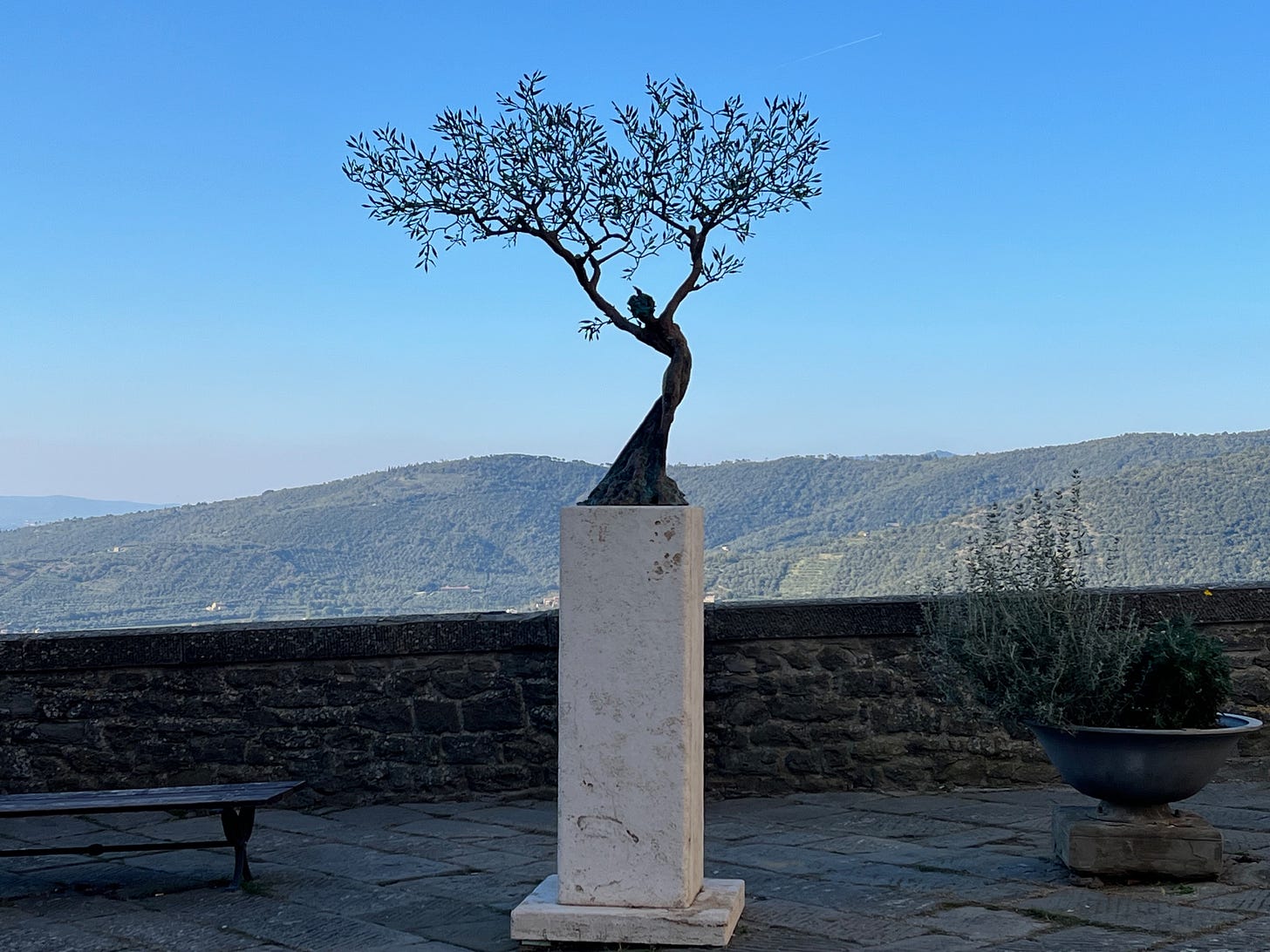
The great tragedy of humanity is that we’re as the leaves and we must fall. We follow the natural course of nature in time (the autumn of our lives) and space (our trees, whatever we grab onto.)
Onto this canvas, we can broaden our horizons, stretch toward higher aspirations. Ungaretti later lived in Brazil where taught Italian literature. He received the inaugural 1970 Neustadt International Prize for Literature.
3/5 A favorite poem by Eugenio Montale from his first book of poetry (it was an entire course in University) puts into words what we might not be able to say.
Forse un mattino andando in un’aria di vetro,
arida, rivolgendomi, vedrò compirsi il miracolo:
il nulla alle mie spalle, il vuoto dietro
di me, con un terrore di ubriaco.
Poi come s’uno schermo, s’accamperanno di gitto
Alberi case colli per l’inganno consueto.
Ma sarà troppo tardi; ed io me n’andrò zitto
tra gli uomini che non si voltano, col mio segreto.Ossi di Seppia (“Cuttlefish Bones”), 1925
My literal translation “Maybe one morning walking in air of dry glass, / I’ll turn and see the miracle occur: / nothingness at my shoulders, the void behind / me, with a drunkard’s terror. / Then, as if on a screen, will suddenly reassemble / trees houses hills for the usual illusion. / But it will be too late; and I’ll quietly go / among the men who don’t look back, with my secret.”
Beyond the illusion, which we feed on daily “as if on a screen,” he tells us that there is nothing, no saving truth to reveal. However, there remains a sense of expectation of something that, suddenly, can change the condition of man.
The action of turning back refers to looking at one’s past, what’s already behind us. Those who have the courage to observe the past can grasp the truth and will no longer be able to be what they were before the nature of reality was revealed to them.
Eugenio Montale was born in Genoa and trained as an opera singer. He, too was drafted in World War I. He was one of the many intellectuals who in 1925 signed the ‘Manifesto of Anti-Fascist Intellectuals’ conceived by Benedetto Croce.
The strength of Montale’s poetry is direct, intuitive, forceful existential provocation. His work of dry synthesis, with words and verses distilled to stern minimal syllables and signs evokes situations, feelings, fears and concepts with precision.
The Italian poet, prose writer, editor, and translator won the Nobel Prize for Literature in 1975 “for his distinct poetics which, with great artistic sensitivity, interpreted human values under the symbol of a vision of life free from illusions.”
4/5 In the coffee shop of a small town called Bounconvento I found two quotes by Charles Bukowski. Which made me think about “No help for that,” a poem on the suffering of not knowing how to accept what we have.
There’s always something that will come later, after.
There is a place in the heart that
will never be filled
a space
and even during the
best moments
and
the greatest times
times
we will know it
we will know it
more than
ever
there is a place in the heart that
will never be filled
and
we will wait
and
wait
in that space.You Get So Alone at Times That it Just Makes Sense, 1896
Whatever success you may achieve, it will never be a guarantee of happiness. I read the poem in the logic that ‘even the rich cry.’
Henry Charles Bukowski was born in Andernach, Germany. The poet, novelist, and short story writer lived and worked in America. His use of violent images and graphic language in poetry and fiction depicted survival in a corrupt, blighted society.
5/5 Mary Oliver has written about nature. But I’d like to wrap this brief review on a high note. The poem ‘Don’t Hesitate’ contrasts the fragility and imperfection of life with the possibility of love and happiness.
If you suddenly and unexpectedly feel joy, don't hesitate. Give in to it. There are plenty of lives and whole towns destroyed or about to be. We are not wise, and not very often kind. And much can never be redeemed. Still, life has some possibility left. Perhaps this is its way of fighting back, that sometimes something happens better than all the riches or power in the world. It could be anything, but very likely you notice it in the instant when love begins. Anyway, that's often the case. Anyway, whatever it is, don't be afraid of its plenty. Joy is not made to be a crumb. Swan: Poems and Prose Poems, 2012
They’re words full of hope, forgiveness, understanding and redemption that joy exists to be experienced in abundance. And we need a daily reminder that “joy is not made to be a crumb.”
Mary Oliver was born in Ohio. Also a teacher, she won a Pulitzer Prize for the collection American Primitive (1983) in 1984.
Reading poetry is a form of meditation on the human condition. Because I started this article with talk about Tuscany, I’ll wrap with a simple thought of why it feels so good to be on the other side of the pond.
I said it multiple times, but it bears repeating—many countries in Europe have organized their society less around money and more around social connection and peace of mind.
That’s the value that is still in Italian culture that makes it so attractive and energizing. To be sure, life is still subject to the vagaries of the human condition. But the view, the food, libations, and space are human scale.
The concentration of places with the right conditions for physical, emotional, and social health are much higher in Europe. I do hope the movement to ‘Americanize’ everything slows down, or the same epidemic of lonely, lost, and disconnected humanity will reach those shores.
Connection in a culture is fundamental for humanity to thrive—to family, friends, loved ones, the places we live. America is probably the best place to make money. But Europe is the best place to live. We’re lucky to be able to shift more of the life stuff over there.
And no, our neighbors did not vacate the couch to rake the leaves from their trees, comfortable in the knowledge that a little wind would blow them on our lawn. Which says so much about the American culture that brought us into this fall.





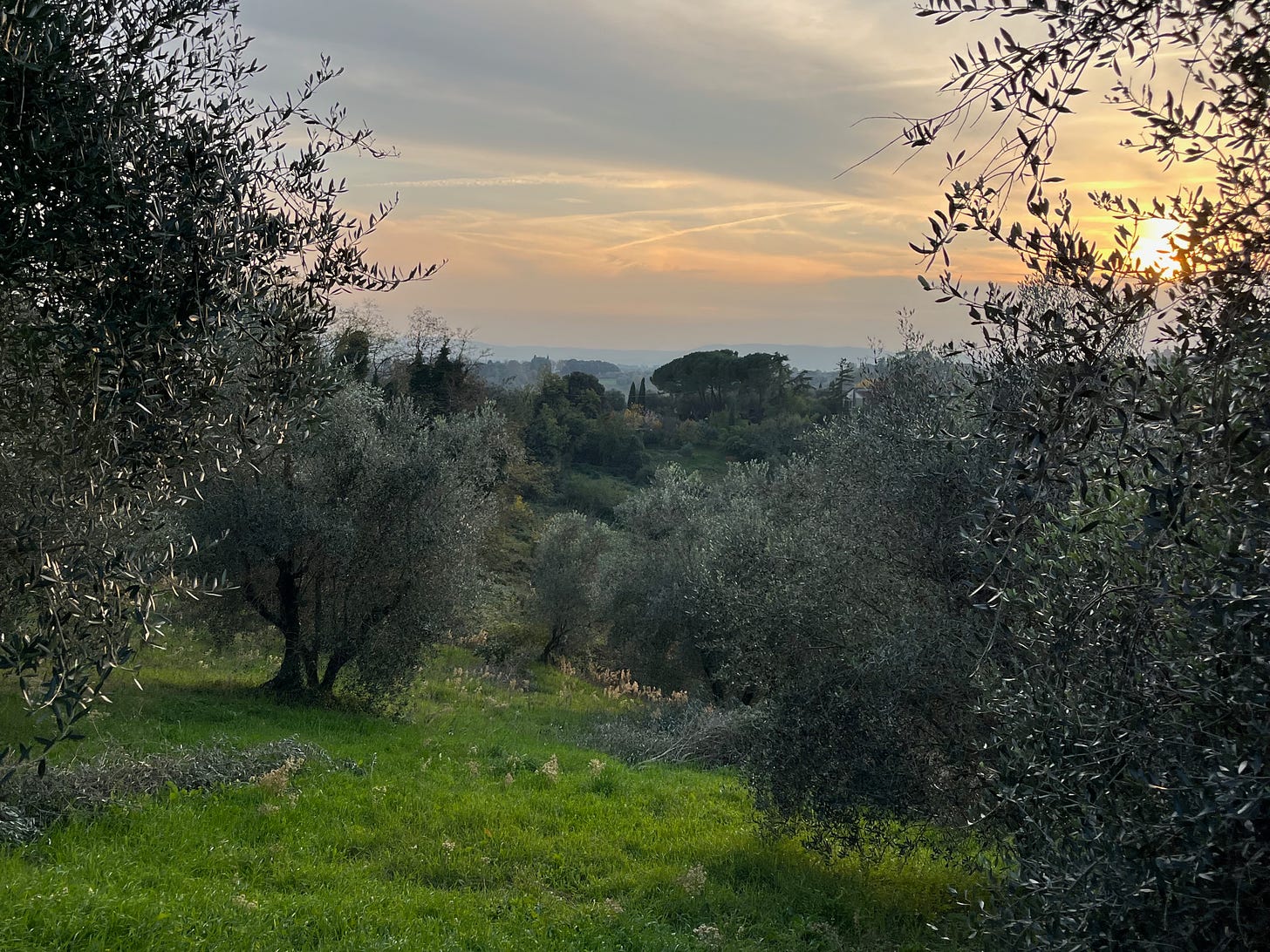
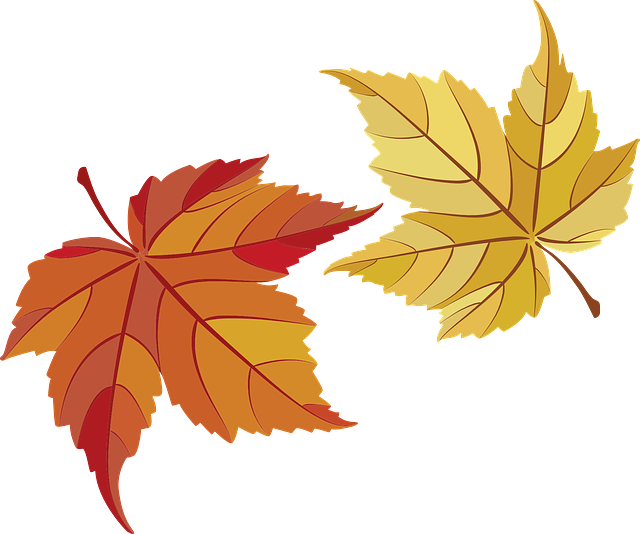
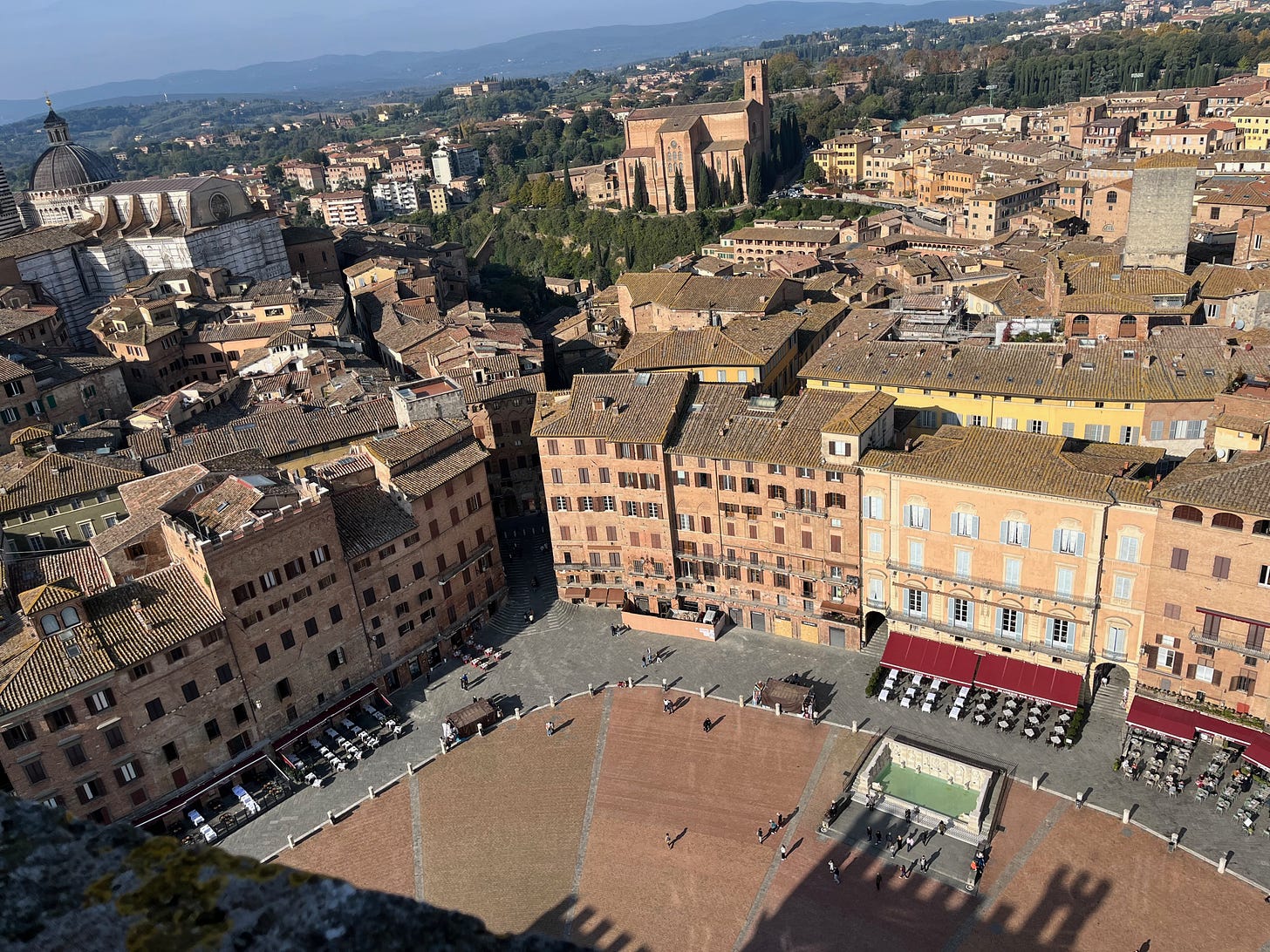
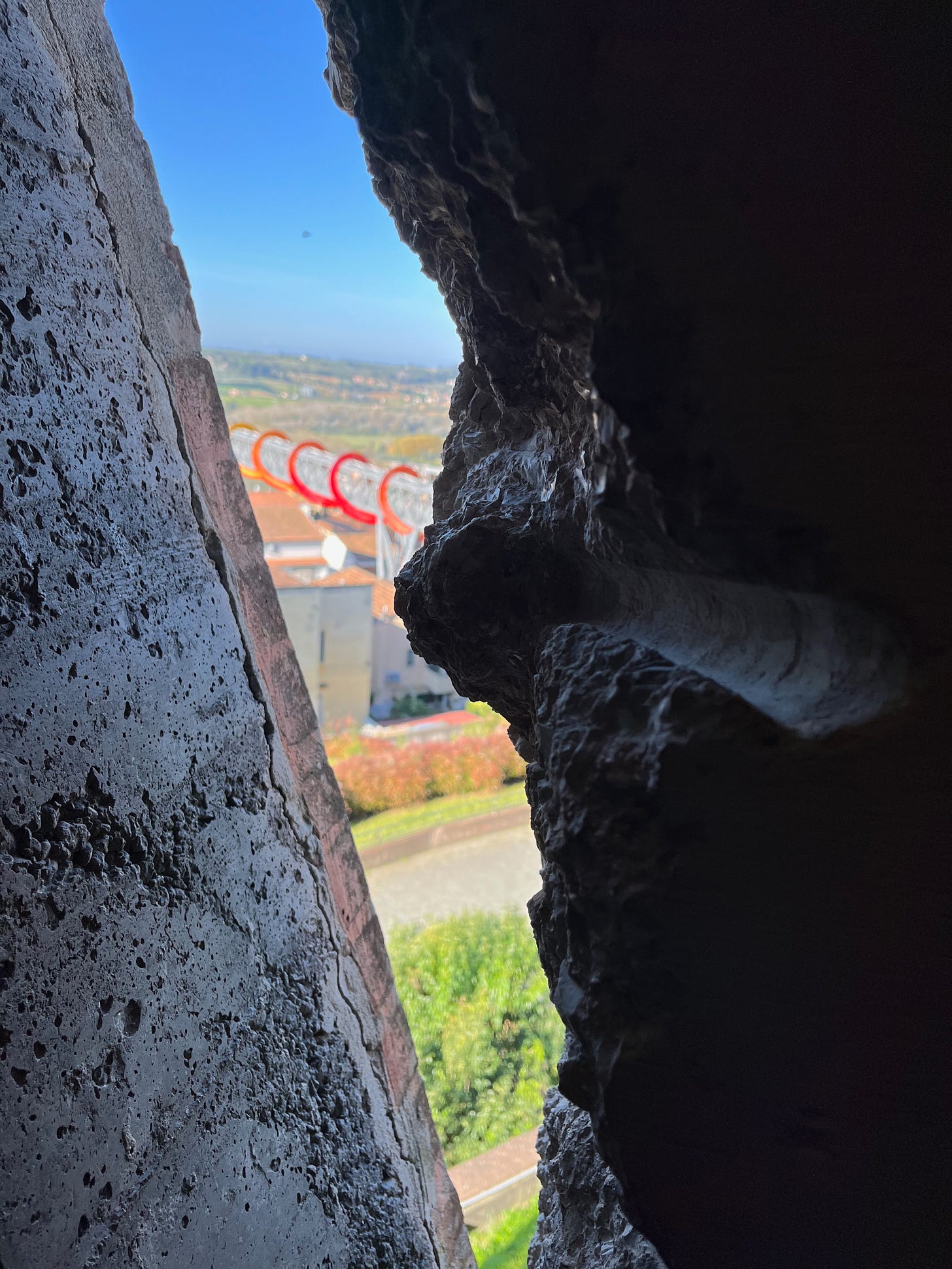
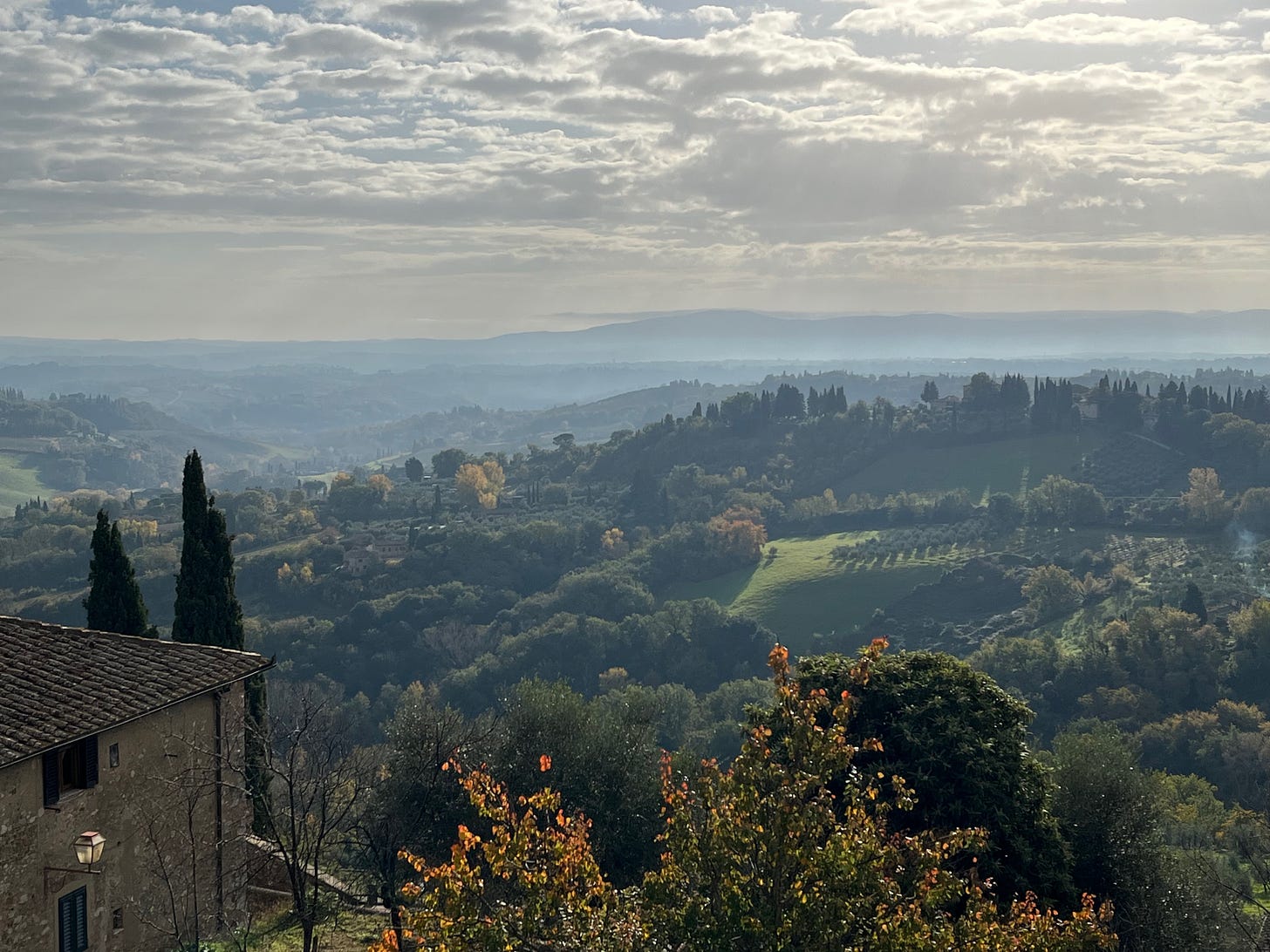
Wonderful perspective to share…
“many countries in Europe have organized their society less around money and more around social connection and peace of mind. “
And even though, here I am in America, it gives me hope that I can create a life around social connection and peace of mind (over money). TY
Thank you, Valeria, for sharing your culture and values. Much here to immerse in, silence and vistas. I am also immersed in T.S. Eliot's "Little Gidding" these days, and the mystic James Finley's reflections on "Four Quartets" (on his podcast Turning to the Mystics).